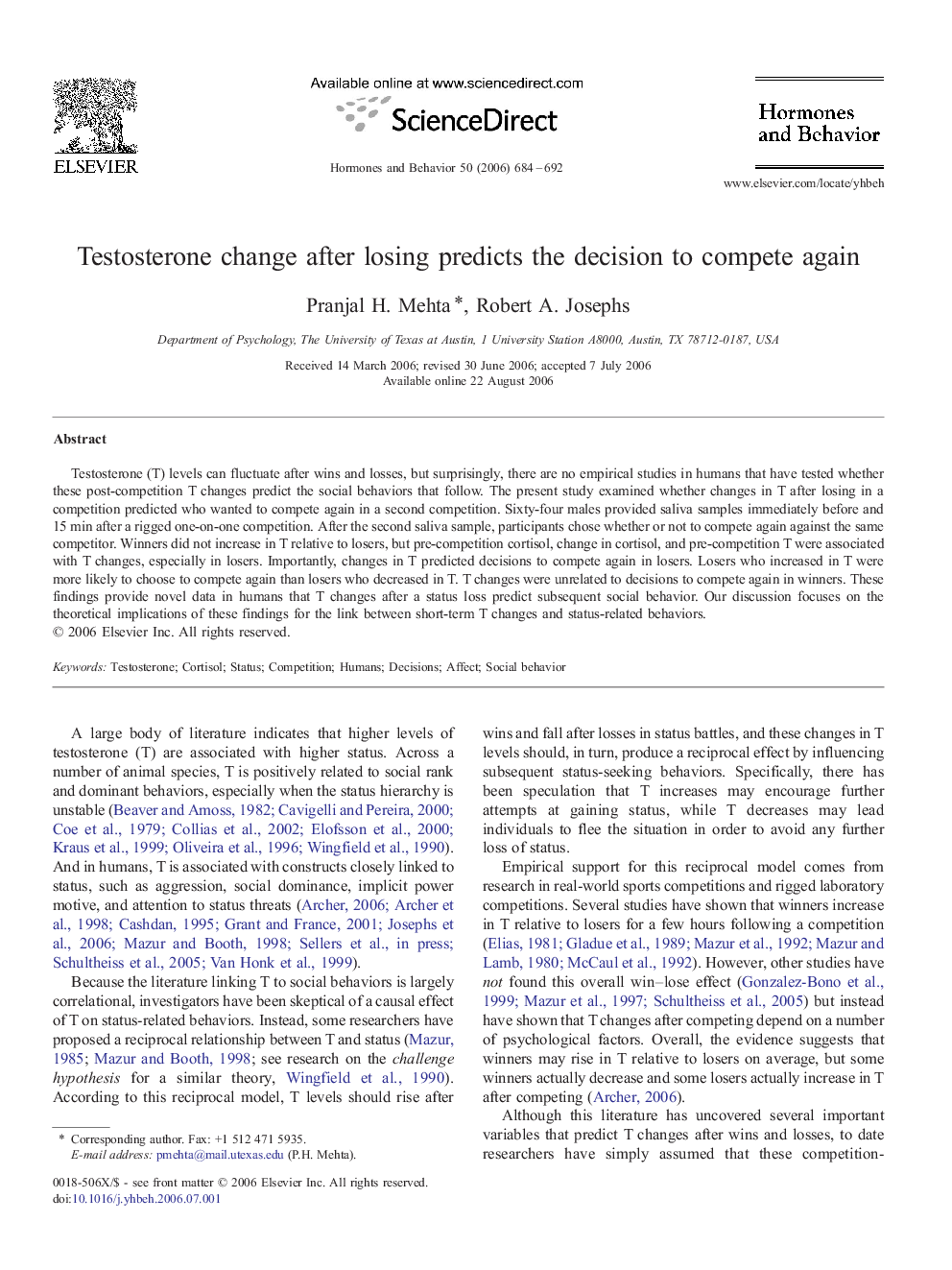| Article ID | Journal | Published Year | Pages | File Type |
|---|---|---|---|---|
| 323878 | Hormones and Behavior | 2006 | 9 Pages |
Testosterone (T) levels can fluctuate after wins and losses, but surprisingly, there are no empirical studies in humans that have tested whether these post-competition T changes predict the social behaviors that follow. The present study examined whether changes in T after losing in a competition predicted who wanted to compete again in a second competition. Sixty-four males provided saliva samples immediately before and 15 min after a rigged one-on-one competition. After the second saliva sample, participants chose whether or not to compete again against the same competitor. Winners did not increase in T relative to losers, but pre-competition cortisol, change in cortisol, and pre-competition T were associated with T changes, especially in losers. Importantly, changes in T predicted decisions to compete again in losers. Losers who increased in T were more likely to choose to compete again than losers who decreased in T. T changes were unrelated to decisions to compete again in winners. These findings provide novel data in humans that T changes after a status loss predict subsequent social behavior. Our discussion focuses on the theoretical implications of these findings for the link between short-term T changes and status-related behaviors.
